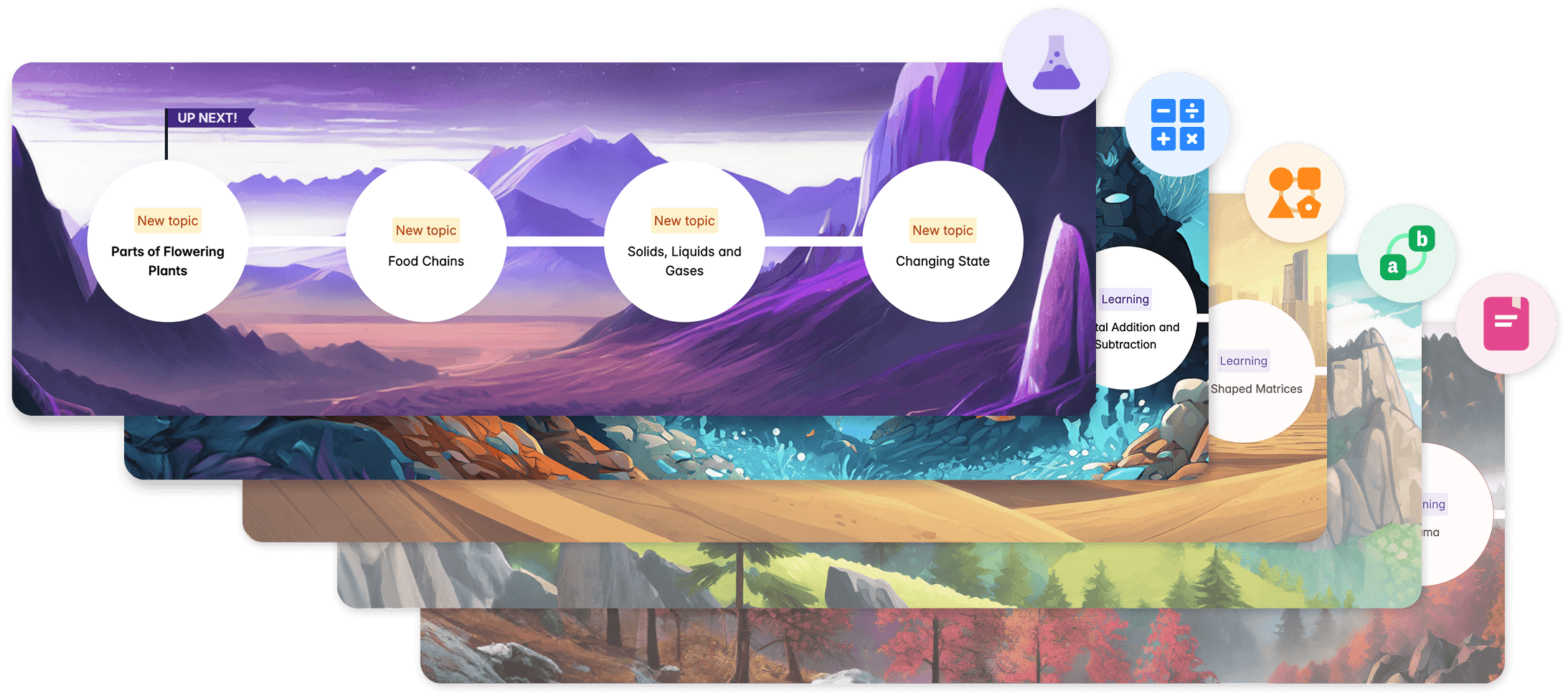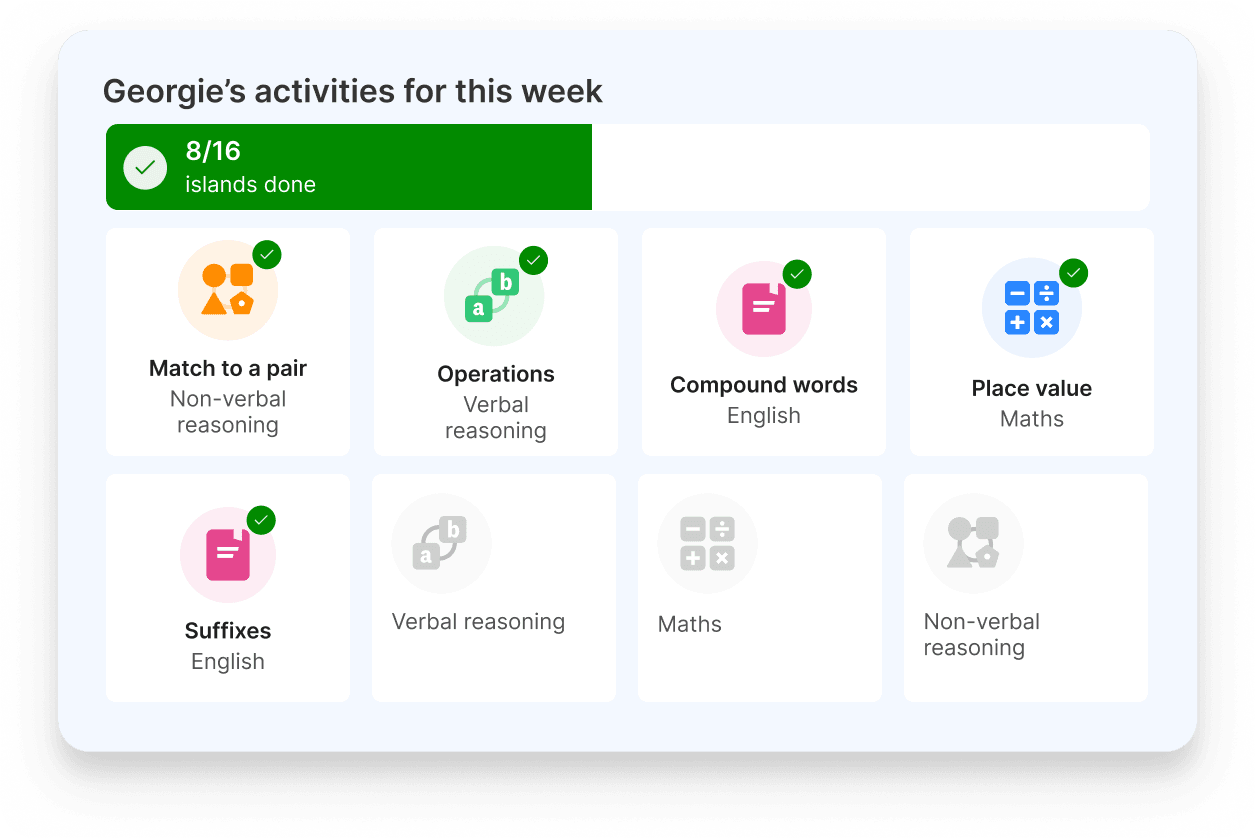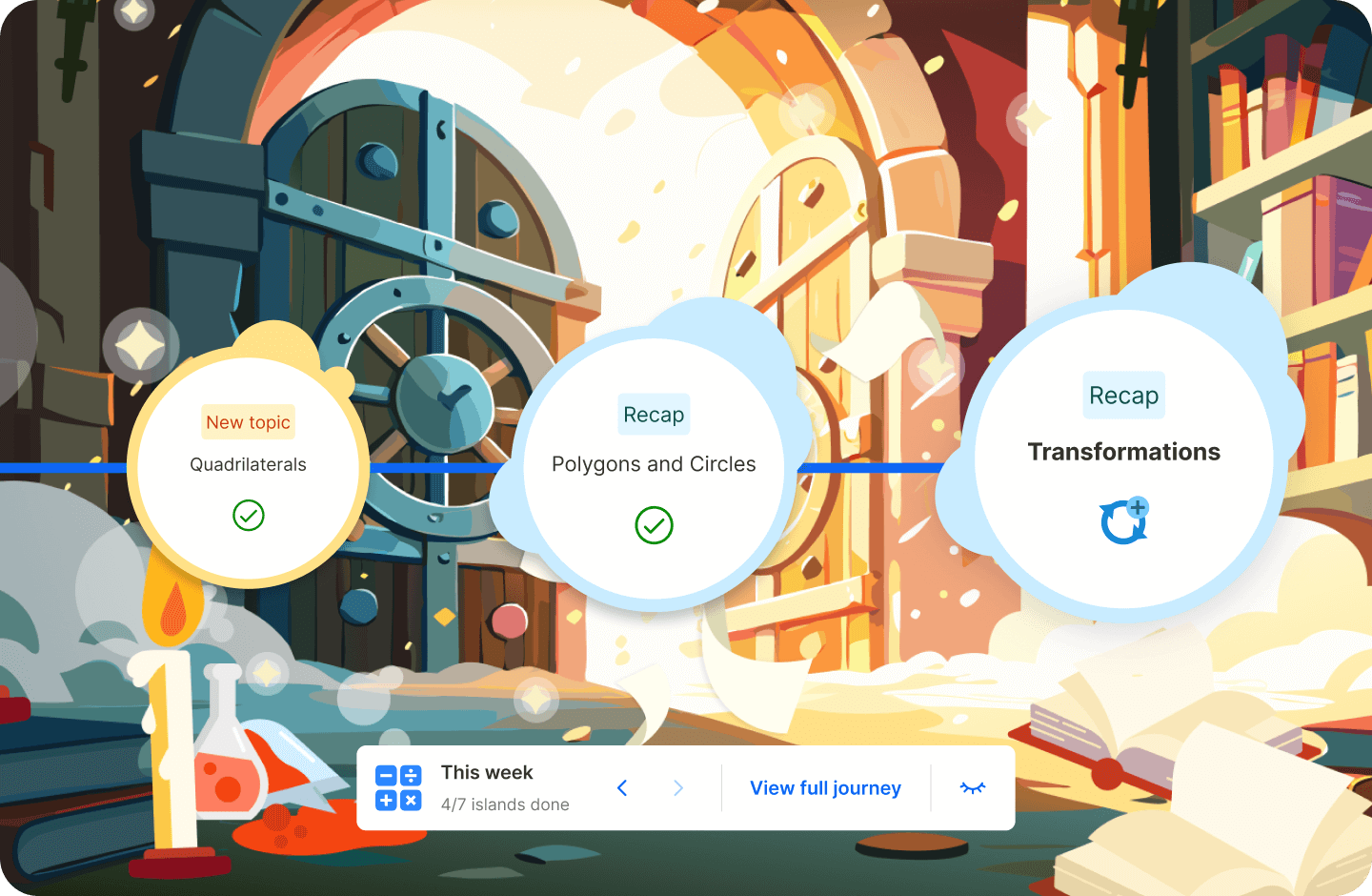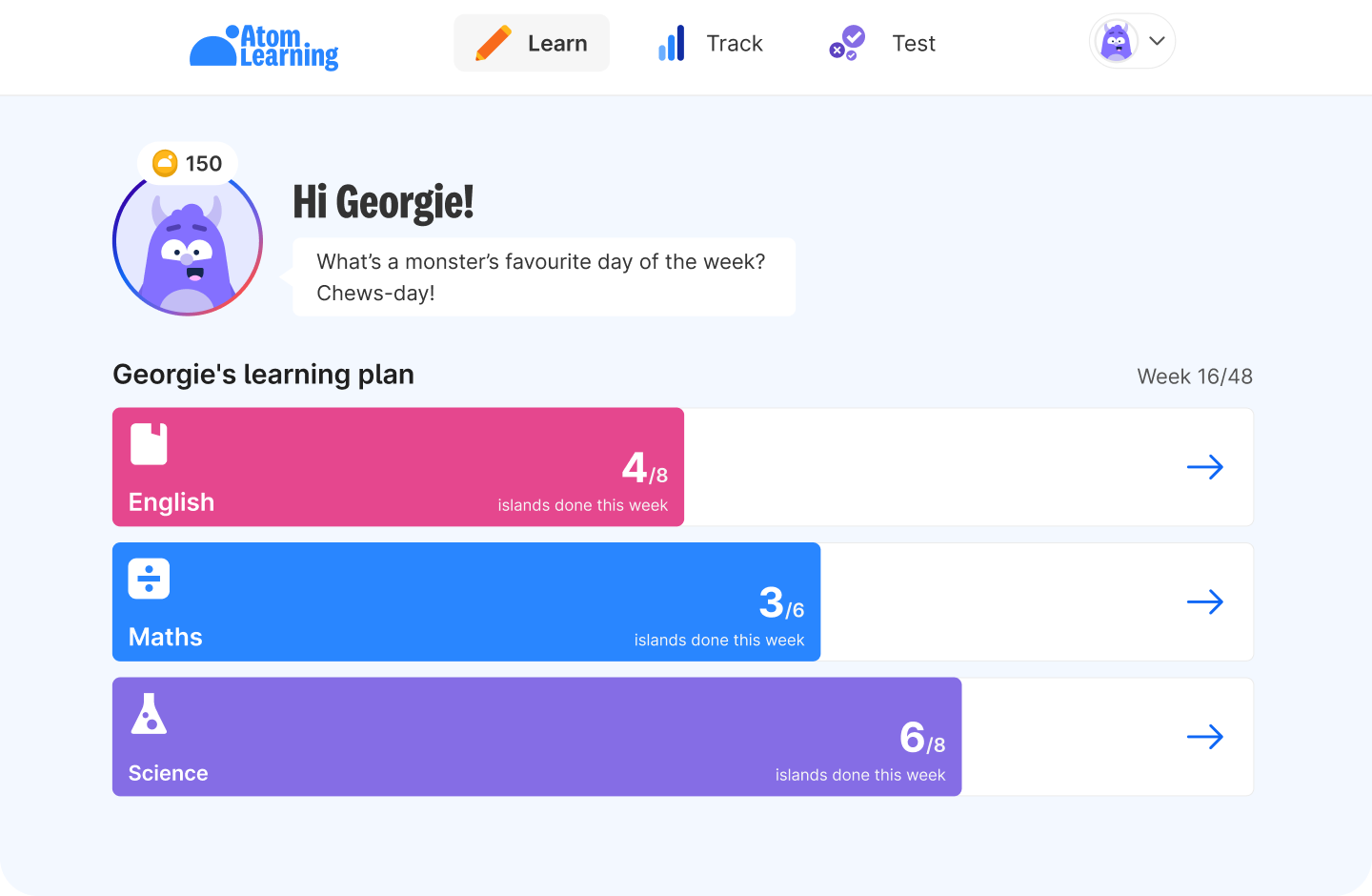How to get ahead for Year 7

The move from primary to secondary school can feel daunting for even the most confident Year 6s. The change in learning environment can bring children out of their comfort zone, academically and socially.
As a parent, there are lots of things you can do to ease the transition and support your child in starting secondary school feeling confident and prepared. In this article, we will cover:
- The academic skills your child will need for the transition to Year 7
- What your child should be doing to prepare for secondary school
- How to keep your child learning over the summer holiday
- How to support your child’s wellbeing before the move to secondary
What academic skills will my child need in Year 7?
The transition from primary to secondary school brings many academic changes. The learning gets more challenging, and expectations step up. In Year 7, your child will be expected to build on their Key Stage 2 foundations and start developing greater independence, critical thinking, and subject-specific skills.
Here are the core academic skills that will help them feel confident from day one:
1. Reading comprehension and analysis
In secondary school English, your child won’t just be reading stories; they’ll be encouraged to start thinking more deeply about what the writer is trying to say and how they’ve said it.
They’ll be asked to explain their opinions, spot big ideas or messages in a text, and find evidence to back up their thinking. It’s less about finding the ‘right’ answer and more about showing they understand and can explain their ideas clearly.
Learn more about reading comprehension here: What's tested on 11+ English comprehension exams?
2. Maths fluency and problem-solving
In Year 7 maths, your child will build on topics they already know, such as times tables, fractions, and percentages, and start learning new topics like algebra. They’ll begin to tackle more complex problem-solving and algebraic thinking, where it’s not just about getting the answer right but showing how they got to the answer and learning how to explain their thinking. Being confident with numbers and mental and written methods will help them feel ready.
3. Scientific enquiry and curiosity
Science lessons become more hands-on in secondary school. Your child will start doing more experiments and learning to ask questions, make predictions, and understand the results. They’ll cover different types of science, like biology, chemistry, and physics, so it helps if they’re already curious and comfortable using scientific words.
Read our blog: Everyday ways to engage your child with Science to help build their interest in Science before they start!
4. Written communication
Writing becomes more important across all subjects, not just English. Whether it’s a history essay or a science report, your child will need to explain their ideas clearly and in full sentences. Being able to organise their thoughts and write logically will really support their progress.
Reading can help improve your child’s written communication. The more your child reads, the more they will be exposed to writing techniques, structure, vocabulary and grammar.
5. Independent learning and organisation
One of the biggest changes in Year 7 is learning how to stay organised. With different teachers, more homework, and a busy timetable, your child will need to manage their time well. Skills like using a homework planner, packing their bag the night before, and checking their timetable will help them feel more in control.
What should my child be doing to prepare for Year 7?
The final term of Year 6 and the following summer are the perfect times to help your child feel confident and ready for the step up to secondary school. With some gentle, targeted revision and the right habits, you can set them up for a strong start.
Here’s how:
1. Talk to their teacher
Before the end of the term, check in with your child’s primary teacher to see if any learning areas could benefit from a boost. A little extra focus now can make a big difference come September.
2. Consolidate Year 6 knowledge
The best way to prepare for Year 7 is to finish Year 6 feeling confident and secure. English, maths and science play a big role in Key Stage 3, so now is the time to revisit key topics and close any remaining gaps.
Two areas worth giving extra attention to are:
- Spelling and writing basics: These aren’t covered as thoroughly in secondary school, so it’s helpful to build confidence with them now.
- Number fluency and trickier Year 6 maths: Topics like ratio, probability, and order of operations can be especially helpful to revisit.
Use your child’s SATs or end-of-year results to identify where a bit more revision could go a long way. You can also use these free checklists to guide your focus:
If your child uses Atom Home, encourage them to keep working through their main Learning Journeys. As they progress and unlock new worlds, the content adapts automatically to their level, challenging them when ready and offering support where needed.

Pictured: Your child’s learning journey, each island represents a key topic they’ll explore and master at their own pace.
Every topic they master isn’t just revision; it’s a step towards a stronger, more confident start in Year 7.
3. Progress Tests
Atom's Progress Tests are an easy way to gauge whether your child has embedded their knowledge of the Key Stage 2 curriculum. These online adaptive tests asses every topic that a Year 6 student needs to master to be in a strong position for starting Year 7.

Pictured: The list of Atom Home's progress tests, showcasing the Year 6 Curriculum Tests available for each subject.
You can then use the transcripts to spot any areas where your child might need a bit more support, and with Atom Home, it’s easy to target those topics using extra practices. This feature lets you create personalised quizzes in specific subjects or subtopics, so your child can focus on exactly what they need, at a pace that suits them.

Pictured: An example progress report for a Year 5 Science curriculum test.
How to keep learning over summer
The 'summer slide' is notorious among teachers. This is the phenomenon where, over the summer holidays, children tend to lose some of the academic gains they made during the year.
There are plenty of ways to combat the summer slide and help your child stay engaged with learning, so they start secondary school feeling fresh and ahead of the game.
Here are our education experts' favourite fun ways to keep your child's mind active over summer.
English activities
The summer holidays are a great time to rekindle (or begin) a love of reading. Encourage your child to read widely to build fluency and vocabulary, as well as general knowledge and cultural awareness that will serve them well in Key Stage 3. Regular reading has also been shown to boost communication skills, which will help them connect with all the new people they'll be meeting in September.
On long journeys, your child might enjoy listening to audiobooks – another great way to build listening skills. You could take turns choosing an audiobook that you listen to as a family in the car and discuss together. Help to strengthen their comprehension skills by asking questions like:
- What do you think is going to happen next?
- How would you describe this character?
- What happened in the chapter we just listened to?
- Why do you think the author chose to end the chapter in that way?
- How might this story be different if it was told from another character’s point of view?
Maths activities
If your child wants to be stretched and challenged, a great way to do this is to introduce them to early Key Stage 3 curriculum topics during Year 6 and the summer break before Year 7.
Atom has 18 maths extension topics that will start appearing in your child's learning journey over the summer between Y6 and Y7 and can be accessed through extra practices.
We recommend setting extra practices in these areas to introduce your child to the Year 7 maths curriculum:
- Mean, median & range
- Scatter graphs
- Basic probability
- Compound probability
- Averages from graphs
- Recurring decimals
- Speed
- Units of volumes and areas
- Surface area
- Proportion
- Percentage change
- Rearranging equations
- Inequalities
- Intro to algebraic notation
- Brackets in algebra
- Algebraic fractions
- Complex sequences
- The nth term
Science activities
Students are often streamed into sets at secondary school, so a strong understanding of Year 6 science and early Year 7 science concepts will ensure that your child begins secondary school one step ahead.
Why not try out some science experiments together at home? It's a fun way to help consolidate their understanding of the Year 6 science curriculum.
Encouraging scientific curiosity in everyday life will help your child build and maintain critical thinking habits, allowing them to hit the ground running in September.
Atom's interactive science questions, videos and help sheets are another easy way for your child to consolidate their knowledge in biology, physics, chemistry and scientific methods.
Learning on the go
Online learning is a great way to keep your child’s skills sharp without making them feel like they’re back in the classroom. With Atom Home, lessons are interactive and engaging, so they feel more like a game than work. Just 20 minutes a day can help keep knowledge fresh and build confidence ahead of Year 7.
It’s also easy to fit around your plans. Whether you’re at home, on a staycation, or by the pool, your child can log in from anywhere, no supervision needed. So while they relax, they can still collect gold stars and keep their progress going, one fun quiz at a time.

Pictured: An example exam prep plan and the activities children can be set for the week.
Attend free Live Lessons
Led by our team of in-house teachers, these fun and interactive lessons are designed to help equip your child with the key knowledge and tools they need to excel in Year 7.
Get ahead for Year 7 lessons
'Get ahead for Year 7' sessions range from deeper analysis of comprehension texts to the mastery of theoretical maths problems. Your child will cover the teacher-identified areas where students frequently struggle when making the academic jump to secondary school.
Register here, or if you're an Atom subscriber, your child can access our bank of on-demand lessons covering English, Maths, and Science from the in-app Lesson Library.

Pictured: Lessons for the 'Get Ahead for Year 7' series, found in Atom Learning's lesson library.
Creative writing course
In Key Stage 3, your child will be required to write accurately, fluently and effectively for a range of purposes and audiences.
Atom’s Creative Writing Course for Years 3–6 is a fun and practical way to help your child develop storytelling, planning, and descriptive writing skills. Taught through video lessons and downloadable activities, the course covers a wide range of techniques that will support your child in the classroom and beyond.
How to support your child’s wellbeing during the move to secondary school
Starting secondary school is a big milestone, and it’s normal for children to feel excitement and nerves. Alongside academic preparation, supporting your child’s emotional well-being is just as important. Talk openly about what to expect, help them feel confident about the change, and reassure them that having questions or worries is okay.
We’ve put together some helpful resources to guide you:
- Find tips to ease the transition emotionally and mentally here.
- Download: 10 quick tips for supporting your child with senior school transition
These simple strategies can go a long way in helping your child feel calm, capable, and ready for the next chapter.
Build strong English, maths and science skills.

Want to support what your child is learning at school, or help them stretch beyond it? Atom gives them the right blend of challenge and support. Help them strengthen foundations, deepen understanding, and grow confident in the subjects that matter most for Key Stage 2 and beyond.
- Follow personalised weekly learning plans that adapt to your child’s level and keep them progressing in English, maths and science.
- Learn through interactive lessons that stretch their thinking and reinforce key skills.
- Track progress topic by topic. See their strengths and pinpoint where they need to improve.
Start your free trial and help your child make real school progress today.



